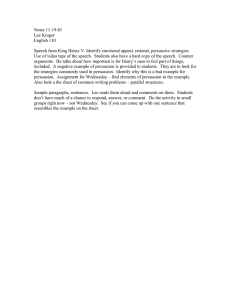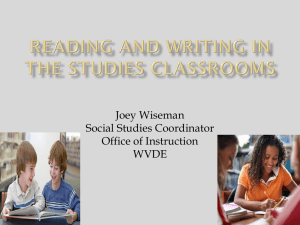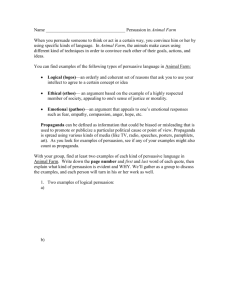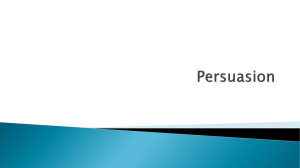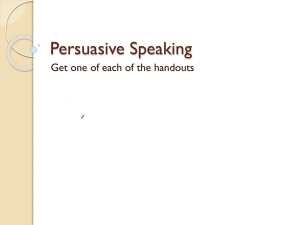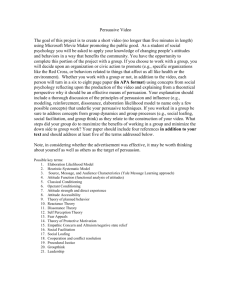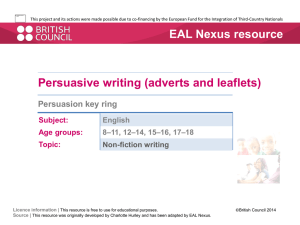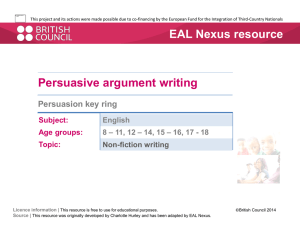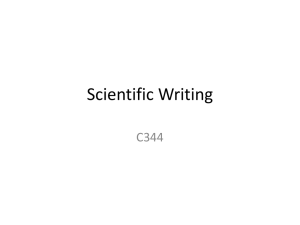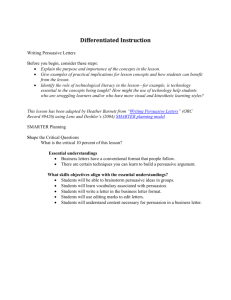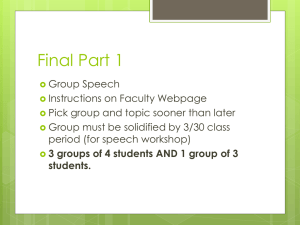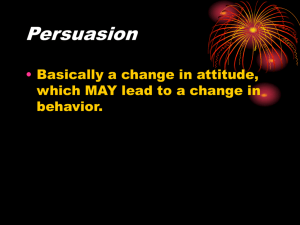January 11, 2016 Dear Family Member: Your child is engaged in a
advertisement
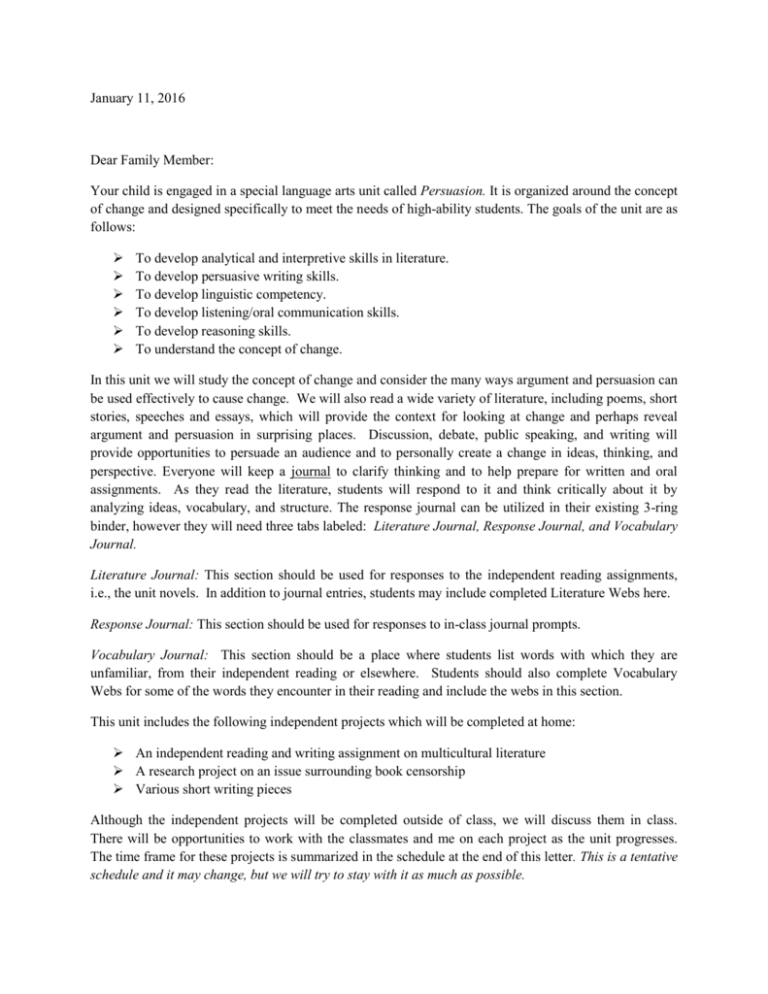
January 11, 2016 Dear Family Member: Your child is engaged in a special language arts unit called Persuasion. It is organized around the concept of change and designed specifically to meet the needs of high-ability students. The goals of the unit are as follows: To develop analytical and interpretive skills in literature. To develop persuasive writing skills. To develop linguistic competency. To develop listening/oral communication skills. To develop reasoning skills. To understand the concept of change. In this unit we will study the concept of change and consider the many ways argument and persuasion can be used effectively to cause change. We will also read a wide variety of literature, including poems, short stories, speeches and essays, which will provide the context for looking at change and perhaps reveal argument and persuasion in surprising places. Discussion, debate, public speaking, and writing will provide opportunities to persuade an audience and to personally create a change in ideas, thinking, and perspective. Everyone will keep a journal to clarify thinking and to help prepare for written and oral assignments. As they read the literature, students will respond to it and think critically about it by analyzing ideas, vocabulary, and structure. The response journal can be utilized in their existing 3-ring binder, however they will need three tabs labeled: Literature Journal, Response Journal, and Vocabulary Journal. Literature Journal: This section should be used for responses to the independent reading assignments, i.e., the unit novels. In addition to journal entries, students may include completed Literature Webs here. Response Journal: This section should be used for responses to in-class journal prompts. Vocabulary Journal: This section should be a place where students list words with which they are unfamiliar, from their independent reading or elsewhere. Students should also complete Vocabulary Webs for some of the words they encounter in their reading and include the webs in this section. This unit includes the following independent projects which will be completed at home: An independent reading and writing assignment on multicultural literature A research project on an issue surrounding book censorship Various short writing pieces Although the independent projects will be completed outside of class, we will discuss them in class. There will be opportunities to work with the classmates and me on each project as the unit progresses. The time frame for these projects is summarized in the schedule at the end of this letter. This is a tentative schedule and it may change, but we will try to stay with it as much as possible. Student progress is the unit will be assessed in several ways. First, a pre-assessment will assess baseline skills in the language arts areas of literature, writing, and linguistic competency. Secondly, a writing portfolio will document progress in writing. We will assess each project with a self-assessment, a peer assessment, and a teacher assessment. Post-assessments will be given to assess skills in the listed language arts areas as students complete the unit. Finally, I welcome comments and feedback from you. Good curriculum and instructional practice should involve parents as well as teachers. The following ideas may be useful as your child experiences this unit: 1. Read the same books your child is reading and discuss the key ideas. 2. Research family history and heritage with your child. 3. Play games such as Scrabble® or Boggle® with the family to enhance vocabulary and language usage. 4. Encourage your child to write every day in a diary or journal. 5. Try to set up correspondence with someone from another country or another part of the United States in order to encourage writing on a regular basis, either through regular or electronic mail. 6. When viewing film or television together, discuss the ideas presented with your child, and encourage close attention to how persuasion is handled in the media and how various cultural and ethnic groups are portrayed. Thank you in advance for your interest in your child’s curriculum. Please do not hesitate to contact me for further information as the unit progresses. Sincerely, Sheri E. Teeter LESSON NUMBER AND DATE ASSIGNED Lesson 1 Date: Jan. 11 Lesson 3 Date: Jan. 29 Lesson 6 Date: Feb. 12 Lesson 9 Date: March 4 Lesson 11 Date: March 8-11 Lesson 13 Date: March 16 DESCRIPTION OF ASSIGNMENT Independent Reading Assignment LESSON NUMBER AND DUE DATE Lesson 7, 10, 15, 20 (One book per lesson) #7 Asia Date: Feb. 8 #10 Africa Date: March 7 #15 Hispanic Date: April 5 #20 Native Amer. Date: May 2 Grammar Voyage Lesson 22 Date: May 6 Collection of Advertisements Lesson 19 (Please provide newspapers and Date: April 22 magazines for this activity) Persuasive Letter Lesson 12 (revising) Date: March 11 Lesson 13 (editing) Date: March 14-18 Research Project on the Issue of Lesson 20 (revising) Censorship Date: April 29 Lesson 22 (presentation) Date: May 3-6 Debate Lesson 17 Date: April 13-15
